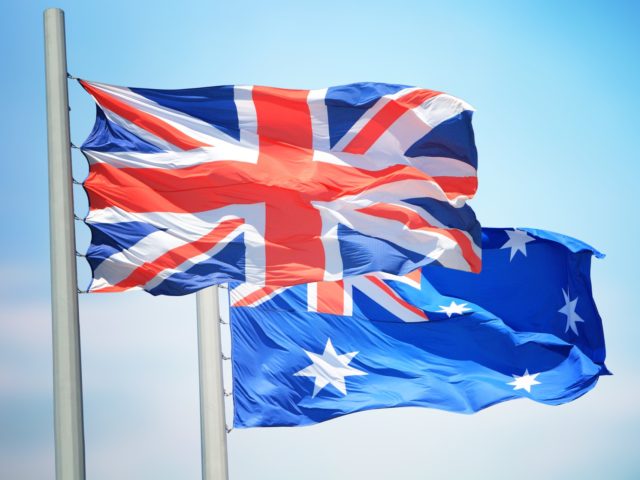Britain has finalised its first post-Brexit trade agreement, righting a “historic wrong” by signing a deal with Australia.
While it was part of the European Union, Britain’s international trade policy was controlled by Brussels, which imposes a Common Commercial Policy on member-states.
This saw tariff gates slammed in the face of British Commonwealth nations including Australia when Britain joined the European Economic Community (EEC), as the EU then was, in the 1970s, and EU-wide trade agreements with Britain’s trading partners were largely unrealised for decades afterwards, as Continental member-states such as France and Germany believed they would not be in the interests of their own farmers and manufacturers.
Indeed, Prime Minister Boris Johnson admitted in the summer that the impact of Britain joining the EEC and ending its preferential trade terms with the Old Commonwealth “was pretty devastating for a lot of farmers in Australia. They committed suicide, some of them, in the face of what happened to Australian agriculture in the ’70s when the UK went into what was then the Common Market,” and Australia’s trade minister said the then-pending post-Brexit deal would “right [a] historic wrong”.
The betrayal of Britain entering an exclusionary Common Market including West Germany and against the wishes of most of the British Commonwealth was felt especially keenly in the 1970s, given the Second World War in which many Commonwealth citizens had fought for the mother country was still a fresh memory for many adults.
The blow was felt somewhat less keenly than it might have been, however, due to French leader General Charles De Gaulle having vetoed an earlier attempt by the British to join the EEC in the 1960s, which signalled to Commonwealth nations that they would have to look beyond the British market if they wanted to survive what proved to be an inevitable stab in the back.
In the 1960s, Australian prime minister Sir Robert Menzies had warned that British entry into the EEC in that decade would have delivered a “tremendous blow” to exporters in Australia, and “an almost fatal blow” to exporters in New Zealand.
Hailing the new trade deal, Britain’s Trade Secretary Anne-Marie Trevelyan said its signing was a “landmark moment in the historic and vital relationship between our two Commonwealth nations.”
“This agreement is tailored to the UK’s strengths, and delivers for businesses, families, and consumers in every part of the UK – helping us to level up,” she said, adding that it had “demonstrate[d] what the UK can achieve as an agile, independent sovereign trading nation. This is just the start as we get on the front foot and seize the seismic opportunities that await us on the world stage.”
HE Vicki Treadell, Britain’s High Commissioner to Australia — the Commonwealth equivalent of an ambassador — said the deal was a history-making event that “heralds our exciting future.”
“This Free Trade Agreement is a world-class partnership that helps Australians access the best of British high-quality goods and services, British companies to realise even greater opportunity in Australia, and shows that Britain is open for business,” the High Commissioner said, stressing provisions that will allow young Britons to work and travel for up to three years free of previous visa conditions.
The deal has not met with universal approval, however, with the Australian Council of Trade Unions complaining that it “waives labour market testing, meaning that businesses don’t have to advertise the position to local workers before they can bring in migrant workers”.

COMMENTS
Please let us know if you're having issues with commenting.